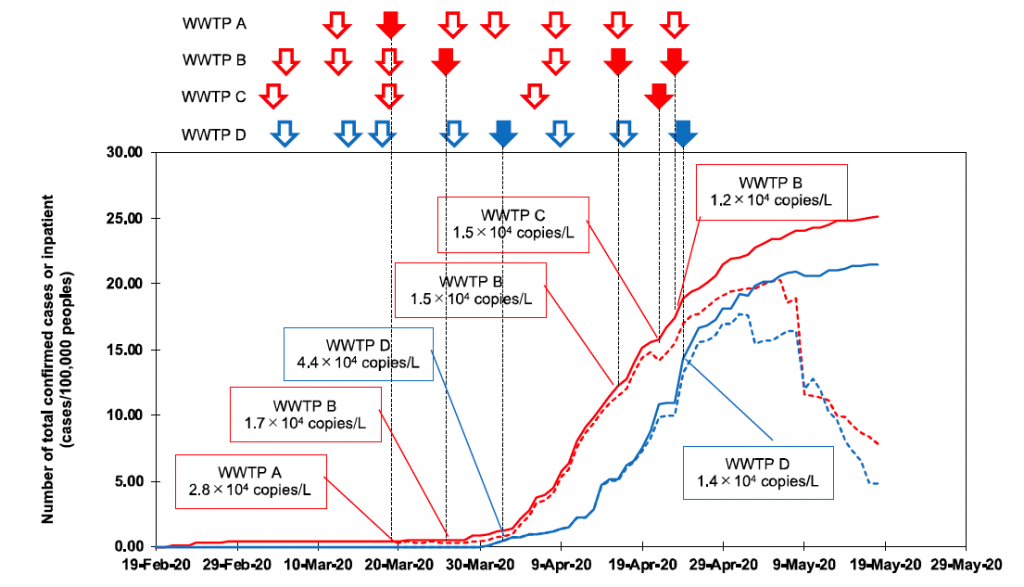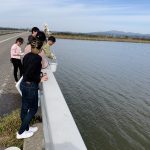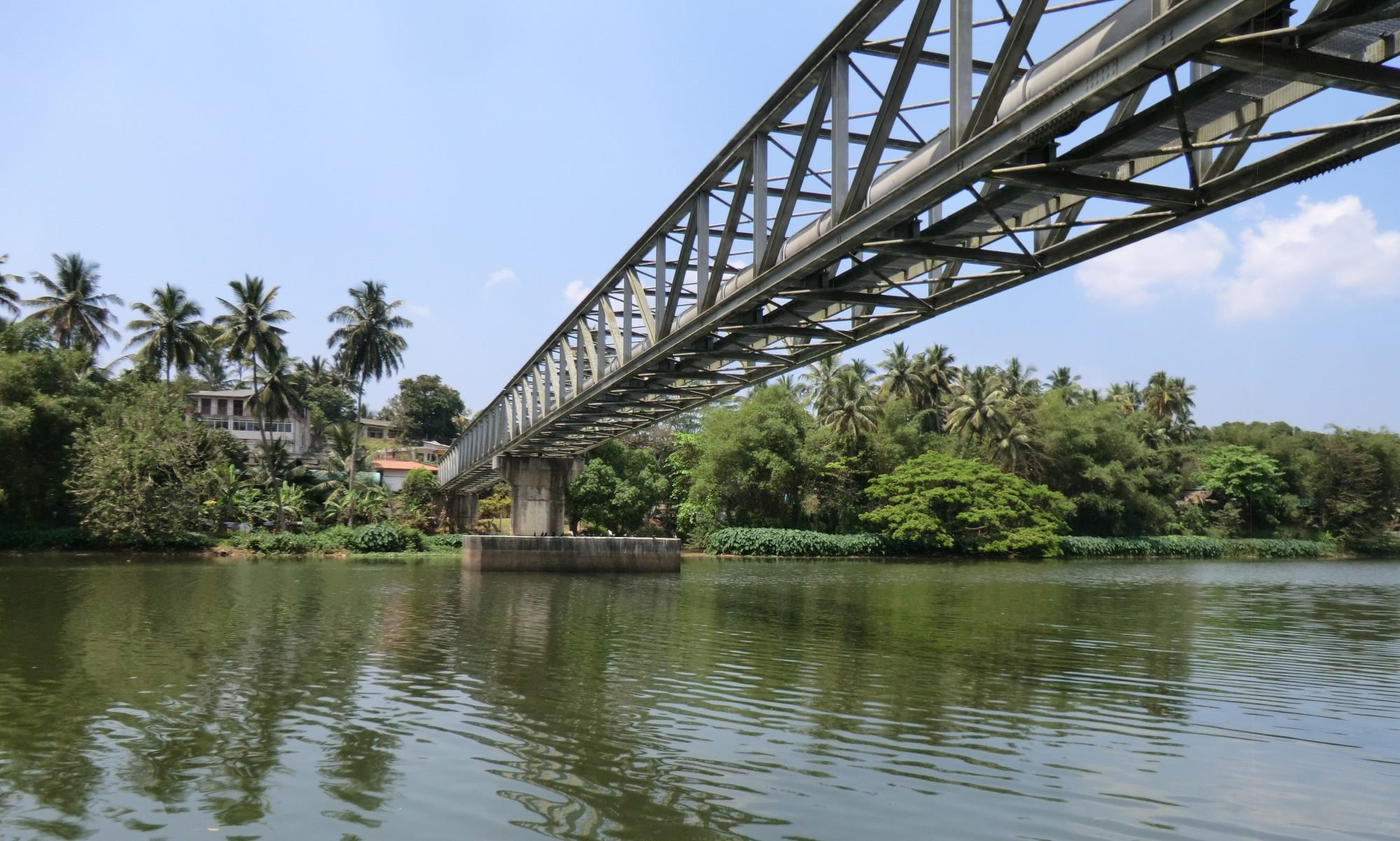Ongoing Research Projects
Detection of COVID-19 infections by wastewater monitoring

Trace of SARS-CoV-2 is detected in wastewater during COVID-19 outbreaks in many countries. Monitoring of SARS-CoV-2 RNA as viral trace is expectedly useful for early warning and taking a snapshot of epidemic situation, which has not yet been captured by clinical surveillance.
We aim to develop efficient methodology for detection of SARS-CoV-2 in wastewater and models to predict the epidemic situation overlooked by clinical surveillance. We also cooperate activities of COVID-19 Taskforce of Japan Society of Water Environment.
Fate and control of antibiotic resistant bacteria in wastewater

Abuse of antibiotics causes prevalence of resistant bacteria in environment, and make the antibiotic less effective. Antibiotic resistant bacteria are enriched in guts of human and livestock, then released in wastewater. Wastewater treatment plant is the important barrier to prevent spread of antibiotic resistant bacteria into water environment.

We study fate of antibiotic resistant bacteria in wastewater treatment processes and water environment by field survey, lab experiment and high-throughput sequencing analyses. From samples taken in our field survey in Chao Phraya River basin and sewage treatment plant in Bangkok, we have found a higher ratio of antibiotic bacteria. We collaborate with Yamagata University, Kasetsart University inThailand, Indian Institute of Technology, Ghandhinagar, University of Ruhuna in Sri Lanka.
Development of indicators of safety for water reuse systems

At present, potable water reuse, where municipal wastewater are polished by advance water treatments and reused as (a part of) drinking water source, are implemented at more than 20 locations over the world. Repeated use of water between upstream and downstream cities along a river is called unintentional water reuse (de facto reuse), and Japan is not a exception of the practice. We are assessing safety of water, particularly reclaimed water, based on various endpoints from cytotoxicity to gene expression change.
Monitoring of water environment using emerging micropollutants as chemical tracers

Recently, various anthropogenic chemicals such as pharmaceuticals, antibiotics, sun screens, pesticides, and herbicides have been detected in wastewater and water environment at the very low concentrations. Such emerging micropollutants are, of course, troublesome in water treatment but at the same time, they are tracers which provide the information of the contamination source. We are developing a method to estimate the origin of contamination by using the pharmaceuticals for different use and with different stability during biological treatment.

